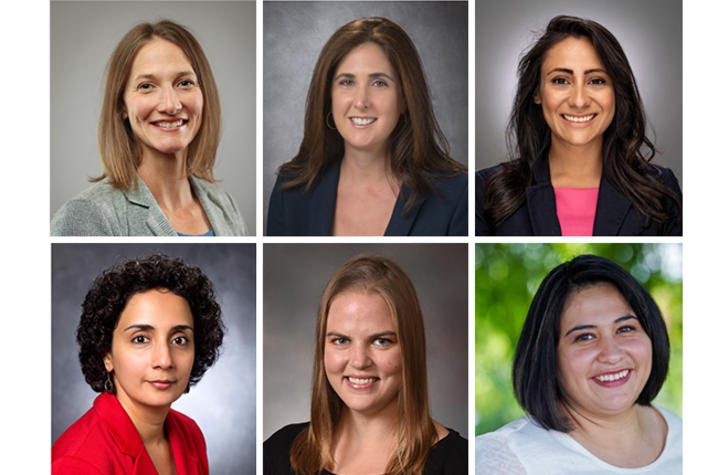Research Scholars Program welcomes 3rd cohort, continuing to foster inclusion, research success

The Research Scholars Program (RSP) has welcomed its third cohort of six faculty from five University of Kentucky colleges. The program is aimed at ensuring diversity, equity and inclusion in research by promoting faculty success.
RSP was created by the Office of the Vice President for Research in 2020, with support from the Office for Faculty Advancement, the Center for Health Equity Transformation and the many units that provide support for participating faculty members. In 2023, RSP is being supported by the colleges of Health Sciences, Pharmacy, Medicine, Public Health and Arts and Sciences.
RSP is aligned with national priorities for research diversity, including the National Institutes of Health (NIH) Faculty Institutional Recruitment for Sustainable Transformation (FIRST) program's goal of creating cultures of inclusive excellence at NIH-funded institutions by implementing well-integrated, evidence-based strategies and evaluating their impact on metrics of institutional culture, inclusive excellence and diversity.
“We are excited to welcome a third cohort of members to the Research Scholars Program to continue to build upon the success we’ve seen with this program. Cohort 3 is a phenomenally talented group already making an impact on the Commonwealth with their research,” said Nancy Schoenberg, Ph.D., RSP co-director. “Through the enhancement and continuation of the RSP, UK is recognizing the accomplishments that can be achieved through nurturing the innovations and talents our junior faculty bring to the table. We have already documented impressive accomplishments from our first two cohorts, including extensive peer review publishing, numerous grant submissions and grants received, invited speaking engagements, new collaborations and a sense of happiness and belonging.”
RSP was developed using survey, focus group and interview data, evidence-based programs, and input from a 15-member Faculty Advisory Committee. It includes three main components: professional development, multilevel mentorship and networking. In working through those areas, scholars are embedded in inclusive research environments as well as scientific and social networking opportunities. The RSP is designed to reduce isolation and facilitate connections within the research community and across campus.
“This is an intensive program, and mentorship is one of its pillars. Our scholars will experience a variety of levels of mentorship: peer, near-peer and scientific. We have a remarkable group of faculty advisors and coaches who are contributing to the success of our junior faculty. Our hope is this continues to build a network of researchers who are engaged in UK’s collaborative research enterprise,” said Kevin Pearson, Ph.D., RSP co-director.
The faculty cohort will receive sponsorship through UK’s seven transdisciplinary Research Priority Areas (diversity & inclusion, substance use, cancer, diabetes & obesity, cardiovascular diseases, energy and neuroscience). Scholars will also be trained on how to write research grant applications and find success.
Programming for Cohort 3 runs from April 2023 – March 2024. You can learn more about RSP online here.
Cohort 3 faculty
-
Deirdre Dlugonski, College of Health Sciences, Community-based approaches for designing effective, sustainable and scalable interventions to increase physical activity among women, children and families that improve health equity
-
Yasminka Jakubek, College of Medicine, Etiology of acquired mutations in cancer and non-cancer tissues and the utility of mutational profiles for improved disease risk stratification in cancer and other chronic diseases
-
Anel Jaramillo, College of Pharmacy, Dissecting neuronal pathways driving alcohol use disorder, anxiety and the interactions between these domains
-
Jayani Jayawardhana, College of Public Health, Substance use policy research, health disparities, large secondary data analyses
-
Courtney Perry, College of Medicine, Disparities in Inflammatory Bowel Disease (IBD) outcomes, Appalachian Health
-
Rosana Zenil-Ferguson, College of Arts and Sciences, Evolutionary biology, speciation and extinction of land plants, phylogenetic comparative models for trait evolution and diversification
Credits
Lindsay Travis (Research Communications)

